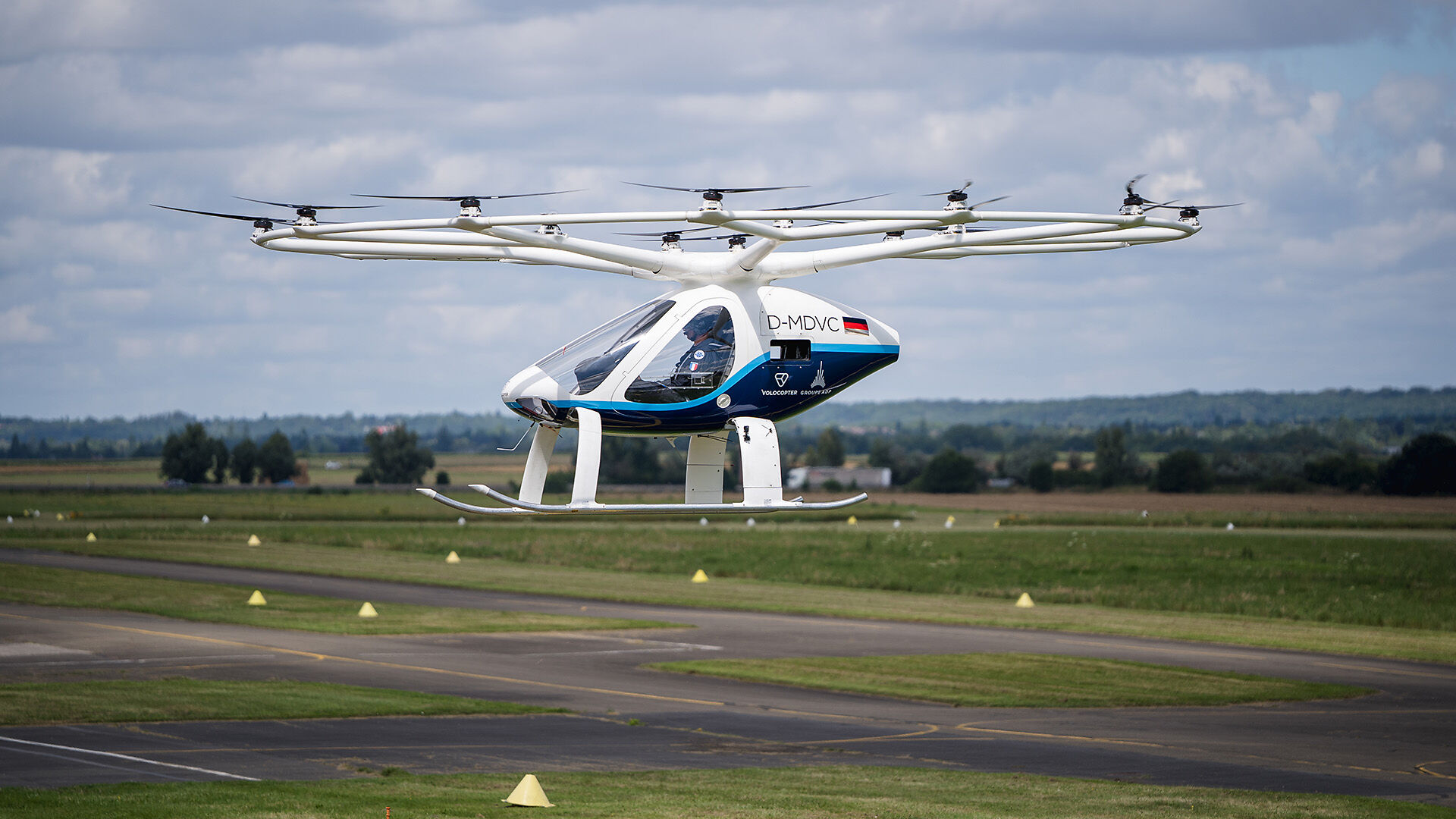Paris Sets the Stage for eVTOL Operational Validation

Volocopter, the pioneer of sustainable air mobility, successfully completed a crewed test flight at the Aerodrome of Saint-Cyr-l'École, the first bespoke commercial vertiport for electric vertical take-off and landing (eVTOL) integrated within Volocopter’s approved flights routes in Paris. This flight initiated the eVTOL operational validation phase, a critical step to making electric flights a norm in the city and beyond. The commencement of this phase holds immense significance for the entire Innovative Air Mobility (IAM) industry, as it will generate practical knowledge for integrating eVTOLs in vertiports and airspaces in megacities worldwide.
The crewed Volocopter aircraft took flight from the inaugurated vertiport of the Aerodrome of Saint-Cyr-l'Ecole, built by Groupe ADP, the company’s longstanding Parisian partner. With this flight, the partners begin their operational validation phase, a pre-commercial test series to mature the eVTOL ecosystem in France. This includes flight maneuvers to and from the vertiport, ground handling, communication with air traffic control, and battery charging and management at vertiports. Validation testing at an eVTOL-bespoke and route-approved location in Saint-Cyr-l'École will give Volocopter a unique advantage in gathering first-hand data on improving its aircraft operations.
This achievement results from over three years of collaborative efforts between Volocopter and Groupe ADP to advance multiple regulatory approvals on infrastructure and aircraft. This includes Volocopter’s advisory role involvement as the industry pioneer in the European eVTOL certification program, airspace operations, and infrastructure design influencing the development of the ready-to-operate St. Cyr vertiport brought to fruition by Groupe ADP.
Edward Arkwright
For this flight test campaign, the company was granted a permit to fly with tremendous support from the French Civil Aviation Authority (DGAC), prior to receiving a Type Certification (TC) from the European Union Aviation Safety Agency (EASA).








.jpg)
.png)




Comments
There are no comments yet for this item
Join the discussion